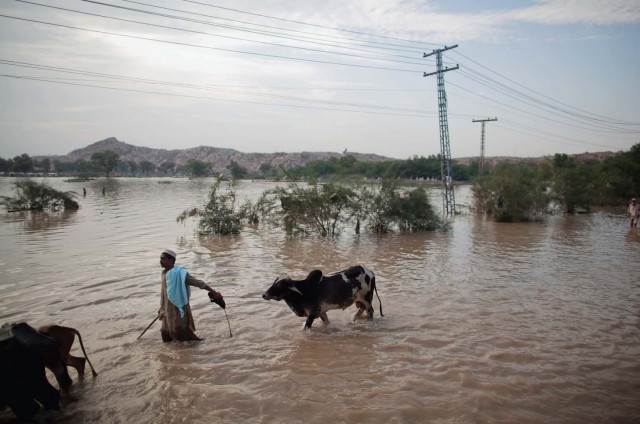Floods – one year on: Much more needs to be done to improve rural livelihood: FAO
UN food agency says it requires $96m to support farmers.

The United Nations Food and Agriculture Organisation (FAO) has said that despite successes in flood rehabilitation efforts, a lot remains to be done to further restore rural livelihoods and to significantly reduce vulnerability, improve food production and income generation, and increase the resilience of rural communities to future shocks.
In an announcement on its website on Wednesday, FAO said its early recovery programme requires $96 million to support 430,000 farming households in 14 severely-affected districts of Pakistan over the next two years.
The floods that struck in July-August 2010 caused hefty damage to agriculture – the basic livelihood for 80 per cent of the affected population of 20 million – estimated at more than $5.1 billion, including the loss of over two million hectares of crops.
FAO said its interventions under the international floods response programme have brought some 900,000 smallholder households – more than seven million people – back on their feet over the course of one year.
Funded by $92 million in donations, FAO’s efforts focused as a matter of priority on winter planting of wheat and vegetables and on spring planting of maize and rice as well as vegetables. Support was provided to preserve vital livestock resources and repairing of farm irrigation systems.
Almost half a million households were provided with wheat and vegetable crop packages. They yielded 650,000 tons of wheat, twice as much as traditional seeds and enough to feed more than four million people for at least six months.
FAO said the total cost of its winter wheat intervention was around $54 million while buying the same quantity of wheat grain on the local market would have cost almost four times as much.
Other interventions included assistance to women to grow fresh, nutritious food in their own kitchen vegetable gardens. FAO said it provided families with vegetable kits, each of which yielded an average 500 kg of vegetables.
Livestock support
Over 290,000 families received support from FAO for their livestock, an area in which women play a crucial role.
This helped to keep over one million animals alive and healthy during the 2010-11 winter until green fodder became available.
Farming families are benefiting from repaired and cleaned on-farm irrigation channels from over 1,000 cash-for-work schemes. This was vital for the winter wheat crop, as well as for crops planted in the spring, particularly rice.
Published in The Express Tribune, July 28th, 2011.



















COMMENTS
Comments are moderated and generally will be posted if they are on-topic and not abusive.
For more information, please see our Comments FAQ